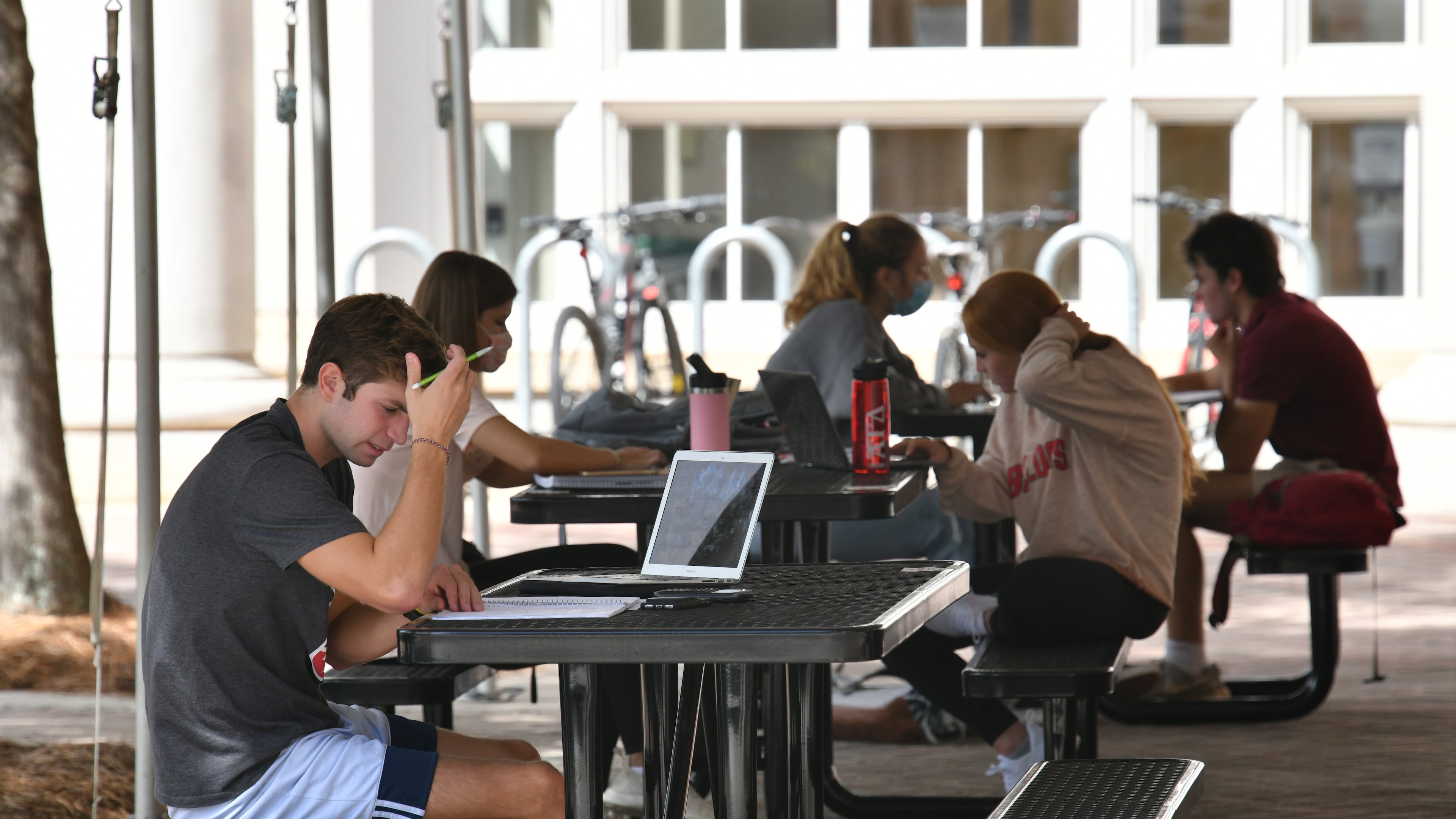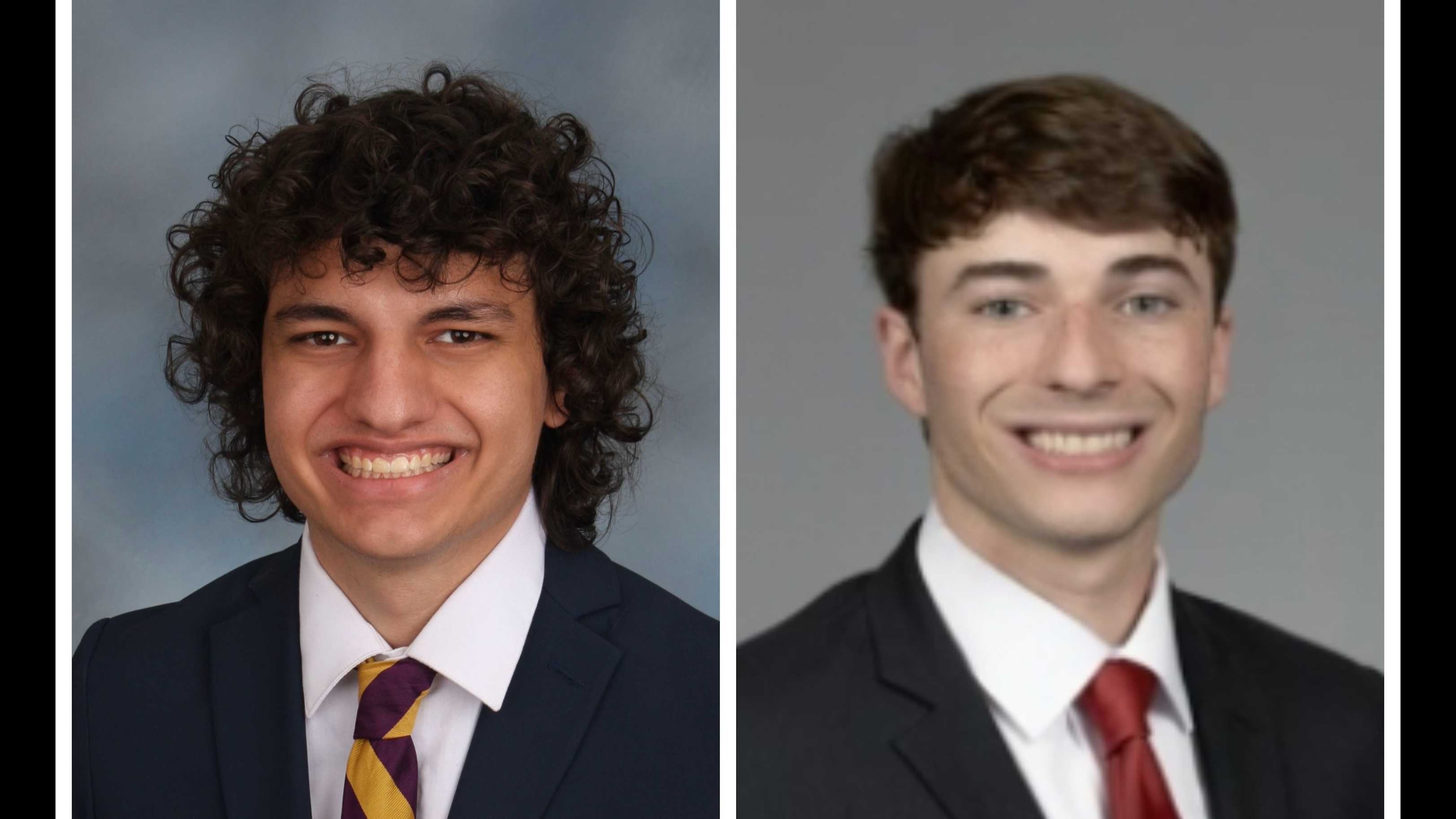Students: Give us and our teachers greater voice in education policies

Georgia Students for Change was founded by Lassiter High School graduates Jacob Hays, Adam Szczupak and current Lassiter student Nate Whipple. The organization advocates for commonsense bipartisan legislation to improve Georgia schools and give students and teachers a greater voice in policies and laws.
In a guest column, Hays and Szczupak advocate for Senate legislation that would attach a student and teacher in an advisory role to the State Board of Education.
Hays, a University of Georgia sophomore, is president of Georgia Students for Change. Also in his second year at UGA, Szczupak is executive director of the group. They also plan to work on a bill this year that would alter the definition of excused absences to include mental health.
By Jacob Hays and Adam Szczupak
In the era of ever-polarizing politics, the classroom has become a battleground for culture wars. Teachers and students are caught in the crossfire. Just last year, an elementary school teacher in Cobb County was fired because of parent complaints about the teacher reading a book from the book fair.
This firing was enabled by contentious legislation passed by the Georgia General Assembly to protect parental rights and prevent students from being indoctrinated into believing certain ideologies.
Political posturing should not be used at the expense of education, which is arguably the most important function of state and local governments. Students are our next generation of workers, of voters, and of leaders. Teachers are practitioners, trained to lead students through their learning journey.
Yet, curiously, neither students nor teachers are substantively involved in the education policymaking process. It’s ironic: Those most affected by education policies are also those least involved in creating them. Students and teachers are in the classroom daily. They should have a say in the policies that affect them.

With this problem in mind, here is a simple solution: advisory councils. For example, if a school board is creating policies related to curriculum, an advisory council of teachers and students can inform policymakers on what works and what doesn’t work. Or, if a school board is creating policies related to student conduct, an advisory council of teachers, administrators and resource officers can inform policymakers on what conduct is actually occurring and what they believe is the best solution.
While data- and evidence-based practices are imperative to creating good policy, policymakers can’t lose sight of the classroom. Data can be widely misleading, and behind every data point is a story. Those stories matter. Students’ stories matter. Teachers’ stories matter. Advisory councils tell these stories. They are an invaluable tool in a policymaker’s toolbox. Yet, they are seldom used. Why?
Fundamentally, the main reason policymakers aren’t using advisory councils is due to one word: complacency. Why would a school board create an advisory council if they don’t need to? They already create policies without one, so why would it be worthwhile to create one?
The answer can be found by asking why use a map when you could use GPS? A map works, but GPS makes the process a whole lot easier. Advisory councils, like GPS, can warn policymakers about potential roadblocks and detours and help them find the most efficient path forward.
However, a symbolic advisory council on its own is not enough. Giving direction is great, but it only matters if it’s followed. That’s why students and teachers need a seat at the table, so they are heard when decisions are made — when it matters most.
The Students and Teachers SPEAK Act, Senate Bill 170, would implement this exact solution. This bill was conceived by the student-led Georgia Students for Change and introduced to the General Assembly by Sen. John Albers, R-Roswell. It garnered a bipartisan coalition of 36 co-sponsors, passed unanimously through the Senate, and is awaiting a committee hearing in the House.
SPEAK would make it so a teacher and a student advise the State Board of Education. These nonvoting members would be present at board meetings, having their voice heard by the public and recorded in the official minutes.
SPEAK is the essential first step to moving away from inflammatory policies and embracing stakeholder-informed policies. Accountability — to teachers, students and stakeholders — is the key to building positive, longstanding policy. Advisory councils are the key to building a better, brighter future. Your voice is the key to passing SPEAK and subsequent legislation that unlocks this greater tomorrow for Georgia’s students.
If you support SPEAK, contact your state representative and tell them to vote for SB 170.

